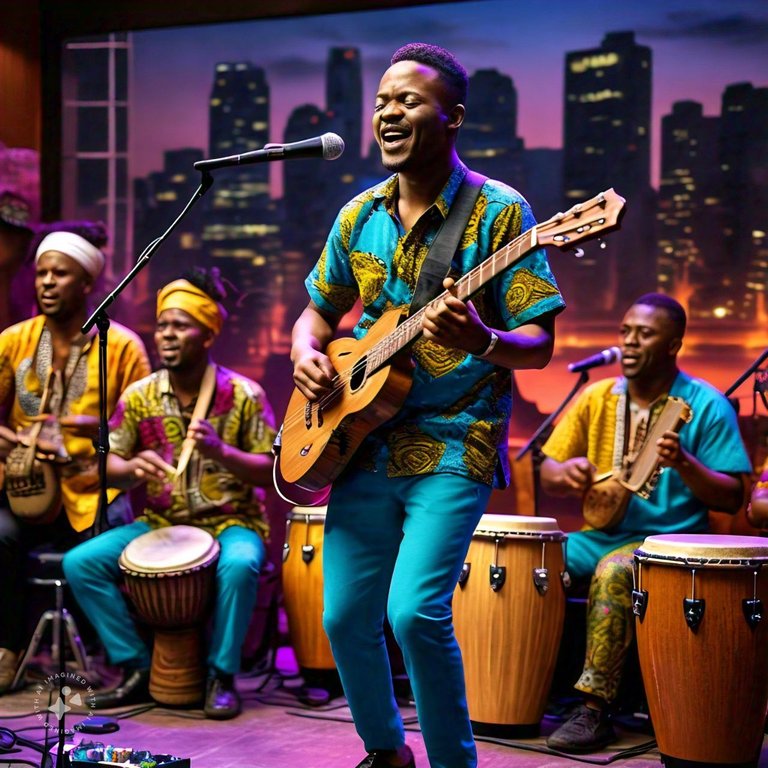
For me, African music isn’t just a sound; it’s an experience that captures the heart of life—how we celebrate, connect, and come together. From genres like Amapiano to Afrobeats, African music has grown beyond the continent, creating waves all over the world.
One of the most magical things about African music is how it resonates with everyone, no matter where they’re from. People from all corners of the world find themselves moving to the beat and dancing to the rythm, even if they don’t understand the lyrics. I remember watching a clip of an Asake concert where people who weren’t even Africans were singing his songs word for word even though it included Yoruba. It was incredible. It’s moments like these that captures the true beauty of African music: it connects deeply with people, with different languages and cultural backgrounds. African music doesn’t even need translation; it speaks in the universal language of rhythm and joy.
And let’s talk about that rhythm. African songs are known for their vibrant beats that just pull you in. It’s like they were made to make you dance. No matter your mood—stressed, fed up, or exhausted—the rhythm finds its way into your body, lifting you up and making you forget everything else, even if it’s just for a while. You may not even realize you’re nodding along, and suddenly you’re on your feet, fully vibing to the beat.That ability to lift spirits, to get people from all walks of life moving and letting go, is one of African music’s most beautiful gifts.
On a practical level, African music has created huge opportunities for young people, especially in Nigeria. In a tough economy, music has become a real lifeline, offering a way for talented youth to make a living and share their passion. African artists are reaching international audiences who stream and support their music every day. Thanks to the internet and streaming platforms, African musicians now have fans worldwide, bringing in more income and recognition than ever before. For many, music is more than just a career; it’s a way to a better life.
African music also lets listeners step into African culture. It normally gives a glimpse into the way people live here, their values, and the experiences that shape them. Through lyrics, beats, and instruments, African songs tell stories that connect us to history, family, and community. This normally attracts not only listeners but also other musicians, who often come to Africa to collaborate, drawn by the authenticity and spirit in the music here.
But maybe the best part about African music is the sense of community it brings. Here, music is the heart of gatherings, whether it’s a street party, wedding, or family celebration. African music has this natural invitation: come as you are, let go of your worries, and join the celebration. It brings people together, making everyone feel like part of something bigger. That’s why African music isn’t just about entertainment; it’s an expression of life itself—a shared experience that connects us all, crossing borders and speaking directly to the soul.
image is from Meta Ai
Posted Using InLeo Alpha